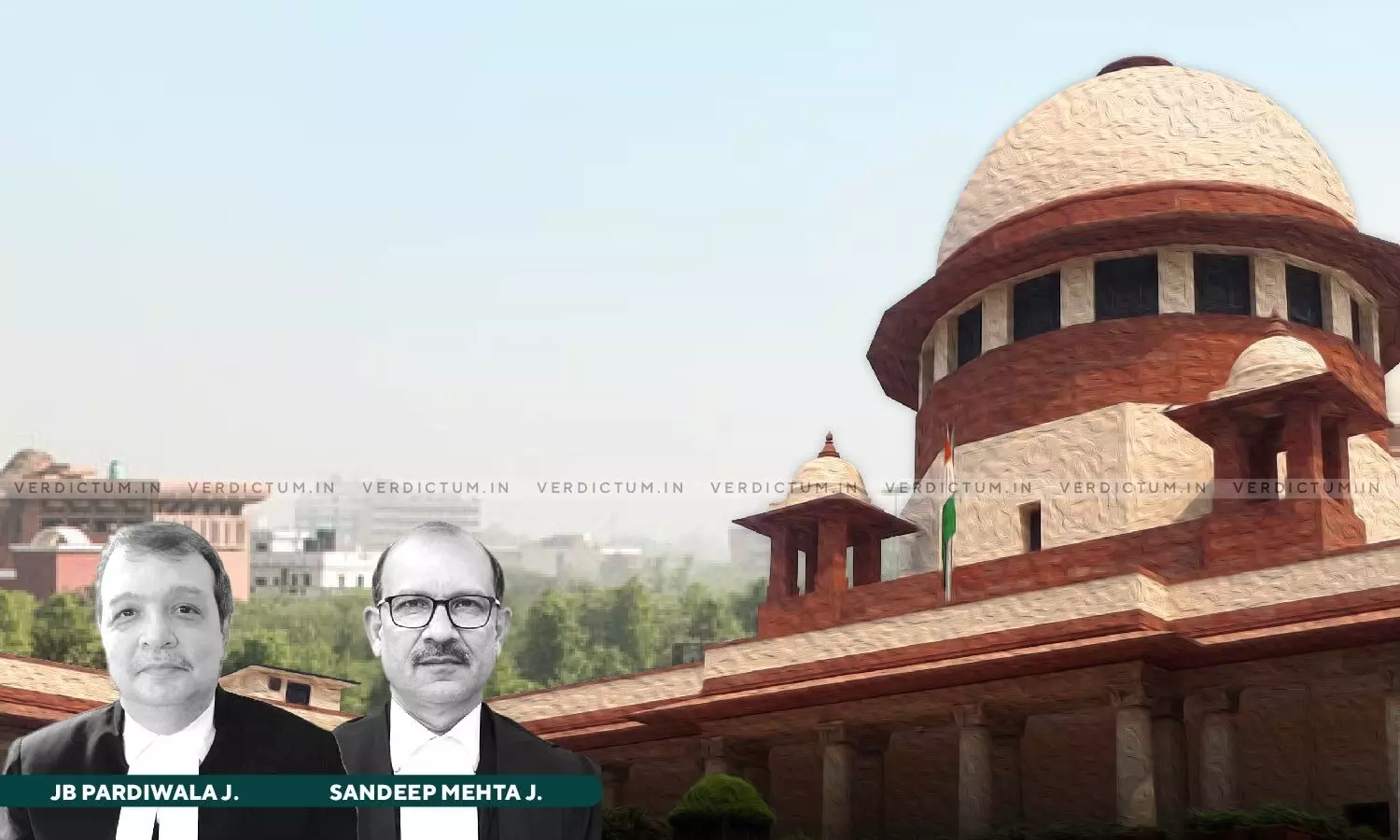
Requirements For Applicability Of Bar On Civil Suit U/S 22(1) of Sick Industrial Companies Act: SC Explains
 |
|The Supreme Court explained the requirements for applicability of bar on Civil suit under Section 22 of the Sick Industrial Companies (Special Provisions) Act, 1985.
In that context, the Bench of Justice JB Pardiwala and Justice Sandeep Mehta observed:
I. First, an inquiry under Section 16 of the 1985 Act must be pending; or any scheme referred to in Section 17 of the 1985 Act must be under preparation or consideration or a sanctioned scheme must be under implementation; or an appeal under Section 25 of the 1985 Act must be pending – in relation the company against whom the legal proceedings sought to be suspended have been initiated.
II. Secondly, the proceedings must be one from amongst the six types [[I. Winding up of the industrial company; II. Execution, distress or the like against any of the properties of the industrial company; III. Appointment of receiver in respect of any of the properties of the industrial company; IV. Suit for recovery of money from the industrial company; V. Suit for enforcement of a security against the industrial company; VI. Suit for enforcement of a guarantee in respect of loans or advance granted to the industrial company], or of a similar nature, i.e. ejusdem generis to the said six types of proceedings.
III. Thirdly, the proceedings must have the effect of threatening the assets of the sick company and interfering with the formulation, consideration, finalisation or implementation of the scheme.
Senior Counsel Malvika Trivedi appeared for the appellants, while Counsel Sundeep Pothina appeared for the respondent.
M/s Coromandal Sacks Private Limited, the plaintiff, manufactured HDPE bags, and Fertilizer Corporation of India Ltd. (FCIL), the defendant, ordered bags from them since 1986-87. Disputes arose over pricing, penalties, and non-acceptance of bags, leading to a recovery suit by the plaintiff. FCIL claimed immunity as a sick company under the Sick Industrial Companies Act.
Both parties appealed to the High Court, with the plaintiff seeking higher interest rates under the Interest on Delayed Payments to Small Scale and Ancillary Industrial Undertakings Act, 1993. The High Court partially allowed both appeals, permitting deductions by FCIL but ruling in favor of the plaintiff on other issues. The High Court granted compound interest at 24% in favor of the plaintiff.
The Counsel for FCIL argued that the 1985 Act supersedes the 1993 Act, citing public interest. The counsel for the plaintiff argued against the applicability of Section 22 of the 1985 Act to their case, as FCIL did not acknowledge the debt or include the plaintiff's liability in their proceedings under the 1985 Act.
On hearing the parties, the Supreme Court observed that, "In the case on hand, the decree in favour of the original plaintiff was not a part of the scheme of rehabilitation approved by the BIFR. Had it been so, it is nothing but obvious that the scheme would have proposed to settle the dues of the original plaintiff at a scaled down value, since a similar approach was adopted in the scheme to settle the dues of all the other creditors. In that scenario, the original plaintiff would not have had any other option but to accept the scaled down value and settle its dues".
It was held that the provisions of the 1993 Act have to be harmonised so as to give effect to the true object of the 1985 Act.
Subsequently, it arrived at the following conclusions:
I. The suit instituted by the original plaintiff before the trial court was not hit by the embargo envisaged under Section 22(1) of the 1985 Act. Thus, the decree awarded in favour of the original plaintiff by the trial court and modified by the High Court, cannot be said to be coram nonjudice.
II. The High Court committed no error in awarding 24% interest to the original plaintiff on its dues as per the provisions of the 1993 Act. However, the period during which the defendant company was a sick company as per the 1985 Act should be excluded for the purposes of calculation of interest.
Resultantly, the impugned judgment was upheld, subject to the modification of the period for which interest may be granted, which was to be calculated at 24% p.a. with monthly compounding.
Appearances:
Appellants: Senior Counsel Malvika Trivedi
Respondent: Counsel Sundeep Pothina
Cause Title: Fertilizer Corporation of India Limited & Ors. vs M/s Coromandal Sacks Pvt Ltd.
Click here to read/download the Judgment